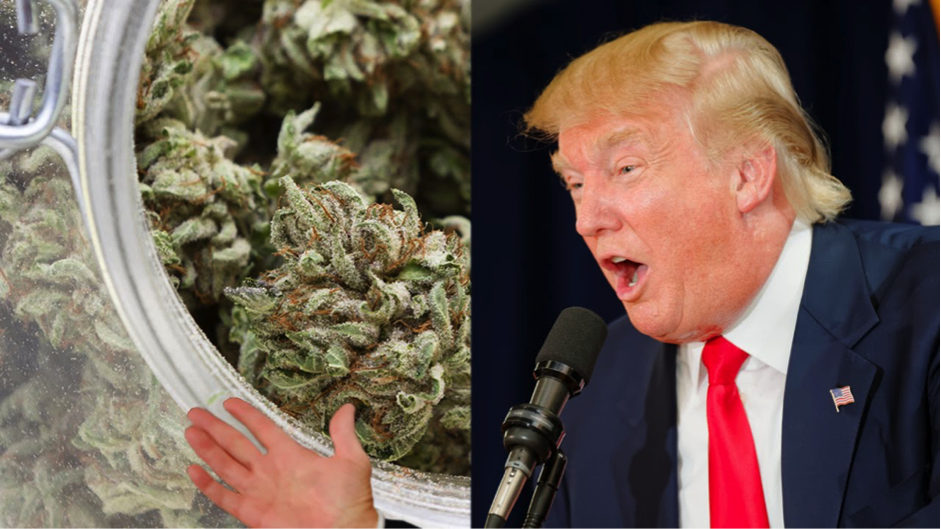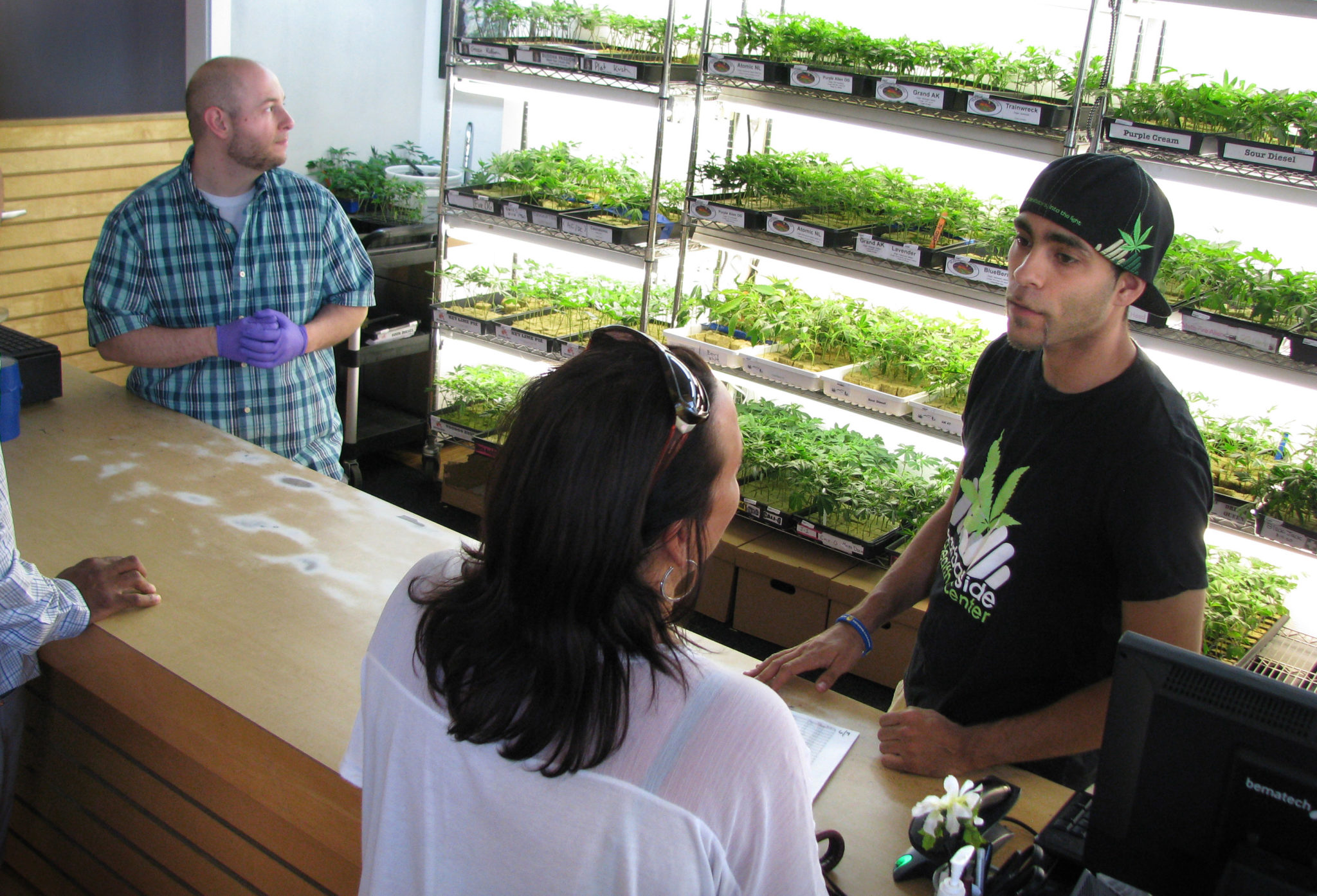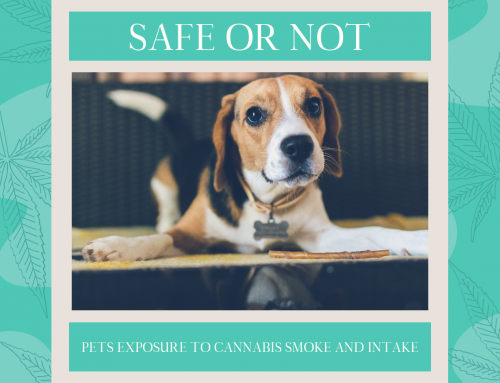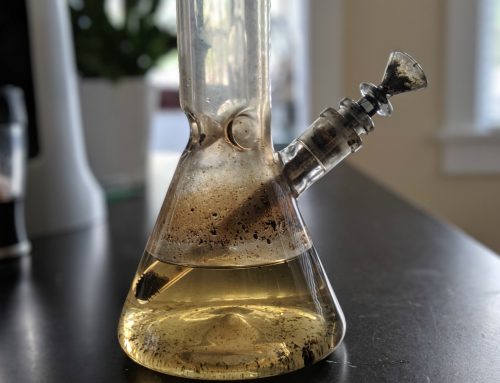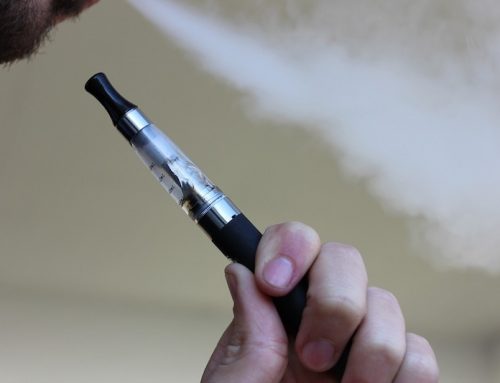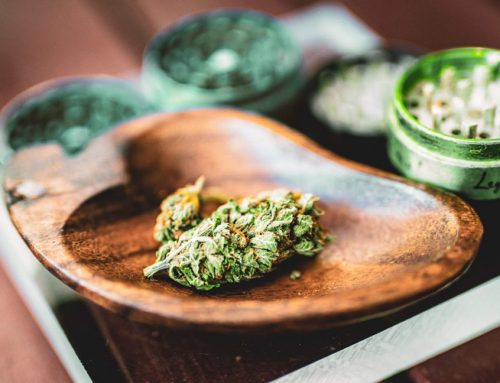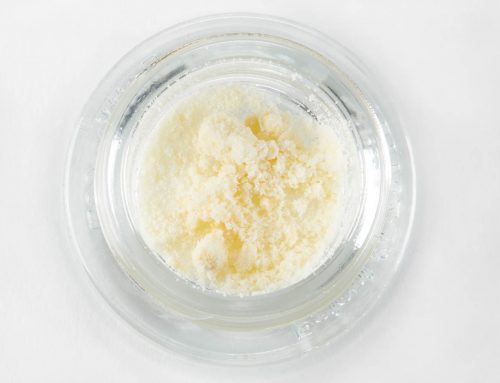To say that this year has proved to be an important year for the cannabis industry would be something of an understatement. Quite simply, never has a single day had such a revolutionary impact on the future of cannabis as November 8, 2016.
No fewer than nine states took either recreational or medicinal cannabis to the vote, which in the vast majority of instances saw victories for the pro-pot camp. As such, the United States cannabis industry is now well on its way to hitting values in excess of $20 billion by the end of the current decade, with thousands of new businesses emerging across the country each and every year.
However, there was one note of shared concern among cannabis campaigners, prior to the individual measures being put to the vote. At the time, it wasn’t sure whether Hillary Clinton or Donald Trump would be elected the next president of the United States. Both candidates had stated up to the election that they supported existing marijuana policy and the way in which individual states have the final say on how cannabis should be controlled.
As we now know, it would be none other than Trump himself who would ultimately win the White House. Given that certain comments made by Trump in the past have painted a different picture of his intended cannabis policy at a Federal level, there is still an underlying tinge of uncertainty. This, coupled with the fact that many of Trump’s political allies do not necessarily share the same mantra when it comes to cannabis control being determined at state level.
Cautiously Confident
For the time being, those who campaigned for cannabis legalization and those who voted to pass the relevant measures remain largely confident that the industry’s growth and development will continue. A strong supporter of the recreational cannabis industry in Colorado, Pueblo County Commissioner Sal Pace believes that while Trump himself may keep to his word, the same cannot necessarily be said for everyone else.
“(Trump has said) he’s not changing any laws … I hope that’s the only campaign promise he keeps,” Pace said.
“He is surrounded by a bunch of those who are terrible on the issue.”
Perhaps the single biggest concern shared by those supporting and contributing to the country’s growing cannabis industry is exactly who will be given the position of United States Attorney General. Given their closeness with Trump, it is entirely likely that the position will be allocated to former New York City Mayor Rudy Giuliani, or New Jersey Gov. Chris Christie. The problem being that in both instances, these are exactly the kinds of individuals who have made no secret of their strong arguments and beliefs against the decriminalisation of cannabis. As such, the appointment of either could lead to further obstacles and challenges for the cannabis industry across the board.
Changing Attitudes
“While the marijuana industry would be concerned if either were appointed as Attorney General, the size of the burgeoning legal marijuana industry in the many states that have now legalized it for recreational and medical purposes is already so big that it’s impossible for the federal government to roll back their policy of allowing states to adopt their own policy in this area,” commented CalCann Holdings Inc. partner, Aaron Herzberg.
“It’s hard to conceive how the federal government could reverse its policy stated in the Cole Memorandum issued in August of 2013, which essentially allows states to adopt their own policy in this area.”
Despite the fact that attitudes toward cannabis have changed spectacularly and more than half of the entire United States now permits the use of medical marijuana, the Drug Enforcement Administration made the ridiculous decision back in August to continue classifying cannabis as a Schedule 1 substance. What this basically means is that in their opinion, cannabis represents a substance with a high probability for misuse, which poses a direct and severe threat to the public in general. They may have showed at least modest signs of progress in their support of on-going cannabis research, but nonetheless decided to keep marijuana under the same classification as heroin.
The Worst Case Scenario
Prior to the election, a legalization advocacy group called Marijuana Majority started a petition for the Federal government to put an immediate and permanent end to cannabis prohibition, also calling on Trump to uphold the rights of individual states to control their own cannabis laws if elected.
“President-Elect Trump has clearly and repeatedly pledged to respect state marijuana laws, and we fully expect him to follow through on those promises, not only because it is the right thing to do but also because these reforms are broadly supported by a growing majority of voters,”, said chairman of Marijuana Majority, Tom Angell.
“Reversing course and going against the tide of history would present huge political problems that the new administration does not need.”
However, there are still some who believe that for the time being at least, the cannabis industry as a whole is still small enough and young enough to be taken apart at the seams. As far as many legal experts are concerned, the simple fact of the matter is that if the government decides that it wants to pull the plug on the cannabis industry, they have every right and ability to do so without even a day’s notice. Technically speaking, if the incoming administration was to appoint a strong anti-cannabis Atty. General, it is plausible that every single individual currently involved in the cannabis industry where states have legalized the substance could be arrested and prosecuted under Federal law. And while most agree that this is a highly improbable future scenario, the fact that it is possible doesn’t sit easy with some.
Treading Carefully
Something else that the vast majority of critics and commentators alike seem to be in agreement on is the way in which it will be necessary for the cannabis community and industry as a whole to tread relatively carefully for the time being. What those in favour of cannabis legalization at a Federal level must absolutely not do is give the incoming administration any kind of reason or excuse to clamp down on cannabis in general. Instead, it needs to be a case of focusing on exactly how and to what extent legalized cannabis is proving to be entirely beneficial for states and communities all across the country.
The simple fact of the matter is that millions of those in the anti-cannabis will not be deterred by the recent vote, but will instead continue to lobby the government for an even stricter approach to cannabis control at a Federal level. Which in turn means that the Trump administration will have the backing of vast swathes of the US population – all of whom will be on the lookout for any and every excuse to highlight any potential downsides of cannabis legalization.
Once again, the likelihood of the way things operate right now being reversed is incredibly low. Nevertheless, this doesn’t mean that things may not change significantly over the coming years, as the policies and priorities of the new president and his staff become clearer.

